Sep 02, 2016
By Sara Verrillo, Digital Media Specialist
To foster an appreciation for the environment while reducing waste, Egg Harbor Township School District recently completed a waste audit at each of its schools with the help of ACUA and its teachers and students.
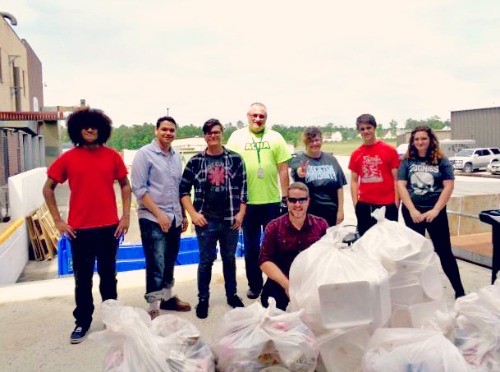
The district has developed a robust environmental education program over the years and recently become involved in the Sustainable Jersey for Schools program. One of the priority actions under the program is performing a waste audit. The school saw this as an opportunity to strengthen recycling and involve students in implementing improvements.
“It was natural to get the students involved in the waste audits so they understood the importance of recycling and also the fiscal responsibility for the district to reduce waste,” said Director of Development Ellen Gregory. “The waste audits went hand-in-hand with other STEM projects taking place in the district.”
Performing the Audit
The first step of the audit included a walk-through inspection to evaluate how waste and recycling is collected throughout the school.
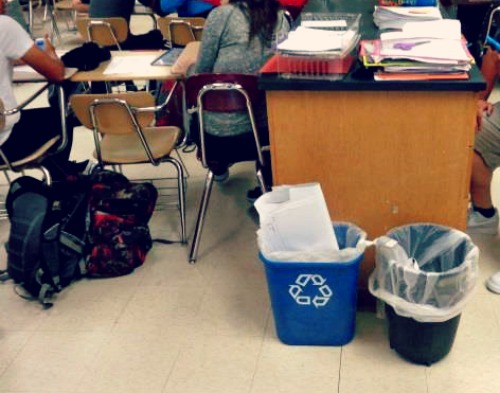
Some questions asked during this process were:
- Are recycling bins as accessible as trash bins?
- Are the bins clearly marked?
- Do students have a clear idea of what can go in each bin?
The next step was emptying trash and recycling containers to analyze their contents for areas of improvement. The materials were separated by trash, recycling and compostable materials/food waste. Despite the ickiness involved (or perhaps because of it), students enjoyed being a part of this exercise.
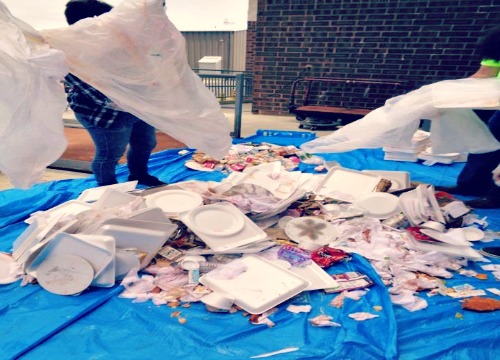
Results & Recommendations
After performing the audits, ACUA recorded weaknesses and recommendations for each area visited. The weights of each material were recorded to provide an accurate recycling rate.
For the most part, students were doing a great job of separating materials accurately. For example, the trash at EHT High School consisted mostly of non-compostable food, plastic baggies, Styrofoam, paper napkins, paper towels and straws. The recycling consisted of paper, cardboard, plastic bottles, aluminum cans, glass bottles and milk cartons.
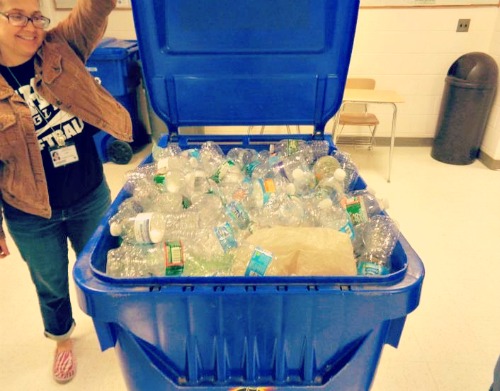
The main areas highlighted for improvement included adding more recycling containers to cafeterias, common areas and office workspaces as well as adding clear signage to note what each bin accepts.
Because many of the schools have small compost operations in place, we also recommended adding and identifying compost bins throughout the school.
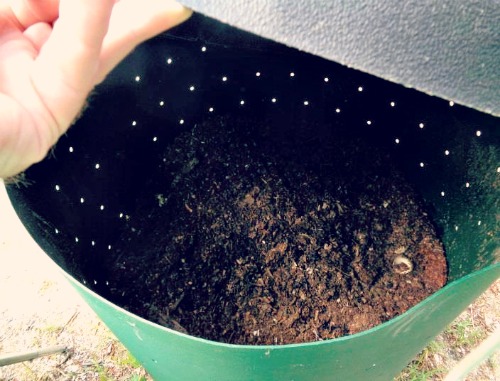
Your School
Schools play a particularly important role in reducing waste because they are among the largest waste generators in the county. A waste audit can help reduce trash, which will save money, and can be a great tool for educating students about the ways we impact the environment.
ACUA is happy to perform a waste audit, provide outdoor recycling containers and share educational materials to get your program going.
Click here to learn more about our school services.